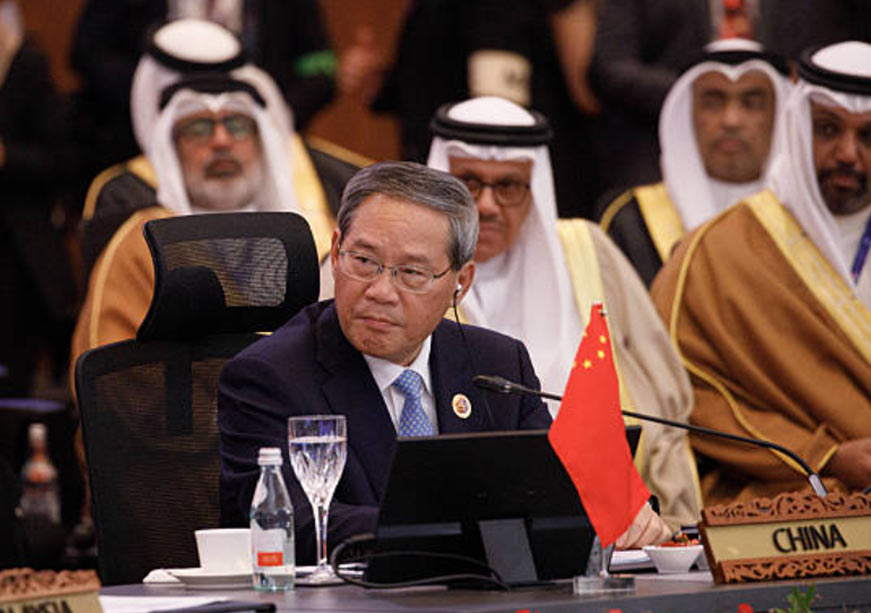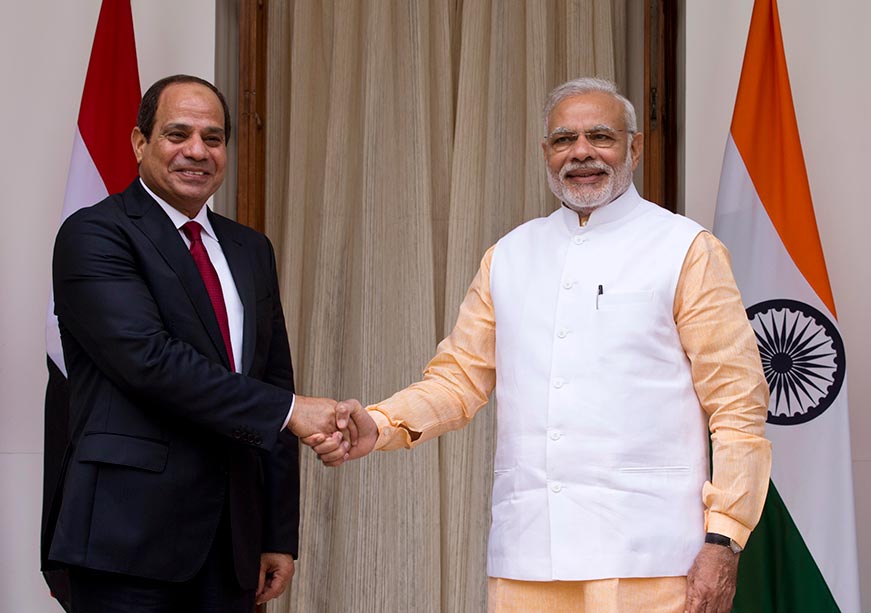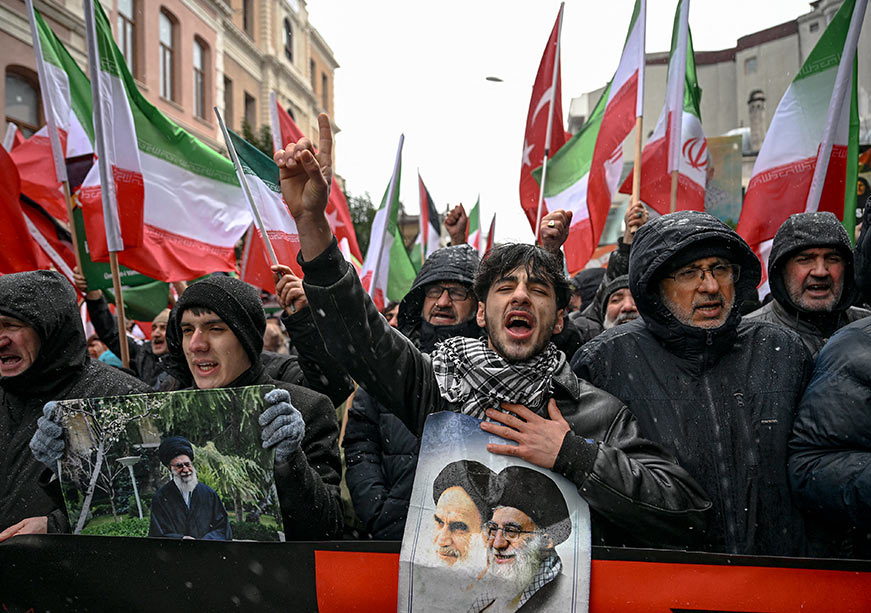The UAE’s tolerance agenda functions not merely as a domestic social policy but as a transnational strategy that diffuses values of coexistence across the region through its large Middle Eastern migrant population.
Introduction
The United Arab Emirates (UAE) has institutionalised tolerance domestically through the establishment of the Ministry of Tolerance (now Ministry of Tolerance and Coexistence) and the launch of the National Programme for Tolerance in 2016, as well as declaring 2019 as ‘the year of tolerance’. Moreover, at a higher education level, students in the UAE can pursue a Bachelor of Social Studies in Tolerance and Peace from the Mohamed bin Zayed University for Humanities. This has been backed up by several flagship moments in recent UAE history, including “hosting the Pope, bringing the Special Olympics, [and] building an Abrahamic House,” as stated by Yousef Al Otaiba, UAE Ambassador to the US, in a 2020 interview.
However, domestic tolerance development is not the only goal set by the country. The Sawab and Hedayah centres are other methodologies through which the UAE has been cultivating tolerance in a global sphere. Even at a regional level, the ‘Sheikh Mohammed bin Rashid Award for Tolerance’ supports young Arab leaders in the field of tolerance. Therefore, one wonders if the UAE’s tolerance agenda is reshaping social and political norms beyond its borders.
The Migrant Attraction Benefit of Tolerance
By creating a socially inclusive and politically stable environment, the UAE benefits from its tolerance, transforming into an economic capital and attracting skilled migrants, entrepreneurs, and global investment. The tolerance agenda reinforces the country’s image as a safe and aspirational hub, as reflected in its repeated ranking as the most preferred destination for Arab youth in the Arab Youth Survey.
As a result, the population of the UAE reached 11.3 million in 2024 according to the Federal Competitiveness and Statistics Centre (FCSC). According to estimates from the same year by the United Nations (UN) Department of Economic and Social Affairs, 72 percent of the population (approximately 8.2 million people) constitutes the global migrant stock in the UAE.
Are Migrants Learning from the UAE’s Tolerance?
While the economic benefits of tolerance are commendable, the country’s tolerance agenda has also been seeping through to its migrant communities. The most remarkable examples of coexistence in the UAE today often arise from interactions among various migrant communities, including Russians and Ukrainians, as well as Indian and Pakistani workers, who live and work side by side.
However, a strong characteristic of migrants is their cross-border networks. The UAE has likely been diffusing such values of tolerance not just to migrants based in the country, but also to their networks abroad. Indeed, the academic literature linking diasporas to cross-border diffusion of values is becoming well-established.
For example, one study has found that immigrants from Latin American and Caribbean (LAC) countries to the United States (US) influence their compatriots back home through cross-border communication. As the migrants’ values change, people who have stayed behind, observing these changes through cross-border communication, accept their compatriots’ new values and practices, becoming more tolerant. Sociologists have called these social or cultural ‘remittances’.
Regional Cultural Remittances from the UAE
Given the national interest of the UAE to ensure regional development across the Middle East, the UAE’s cultural remittances may be proving most effective in its own region. Close to one-fifth of the UAE’s migrant population comes from the Middle East and North Africa region (corresponding to at least 14 percent of the total population of the UAE), as broken down by country in the table below:
| Country | Migrant stock in the UAE (2024) |
| Egypt | 841,883 |
| Yemen | 192,423 |
| Jordan | 158,125 |
| Sudan | 124,677 |
| Kuwait | 63,192 |
| State of Palestine | 54,566 |
| Syrian Arab Republic | 49,529 |
| Lebanon | 39,223 |
| Türkiye | 35,736 |
| Morocco | 8,368 |
| Saudi Arabia | 6,157 |
| Tunisia | 5,497 |
| Qatar | 2,500 |
| Bahrain | 1,870 |
| Total MENA | 1,583,746 |
Source: UN
Approximately 29 percent of this regional diaspora in the UAE comes from populations affected by conflict or post-conflict transition: Yemenis, Sudanese, Lebanese, Syrians, and Palestinians. Ultimately, the UAE’s tolerance agenda may leverage regional immigration not only for economic diversification but also for reshaping the region’s normative landscape.
Nonetheless, whether this agenda can foster genuine societal pluralism across Middle Eastern societies depends on the authenticity of such diffusion. The extent to which Middle Eastern expatriates will internalise these values remains unclear, and thus the success of such cultural remittances remains an open question.
Indeed, for this diffusion to occur, the UAE should invest more in integrating these expatriates into the educational system, cultural gatherings, and other civic pillars, which enable the internalisation of tolerance values. Moreover, enhanced transparency of the UAE’s political development could also contribute to the immigrants’ appreciation for alternative forms of government that could be implemented back home, providing a hotbed for ‘political remittances’ that are desperately needed in some parts of the region undergoing governance transitions.
Conclusion
The UAE’s demographic structure creates a unique natural experiment to explore how migration serves as a conduit for the transmission of values such as tolerance and coexistence. Future research should focus on how attitudes toward pluralism among regional expatriates in the UAE are evolving through their experiences of living in the UAE. Understanding these dynamics would not only enrich the literature on social/cultural remittances but also provide practical insights for policymakers seeking to cultivate tolerance globally and regionally.
Indeed, the UAE’s tolerance agenda demonstrates that regional leadership could be rooted not in ideology or dominance, but in reshaping the normative landscape through values of coexistence. This helps the region in its strive to combat conflict and intolerance, securing successful governance transitions when needed. As the late Sheikh Zayed Bin Sultan Al Nahyan stated: “Cooperation between people, regardless of their diverse religions and beliefs, serves as the foundation of happiness. By fostering cooperation, people unite both the close and distant. No individual, regardless of their background, can solely rely on themselves. And it becomes essential for humanity to share the blessings bestowed upon them by God Almighty.”
Mahdi Ghuloom is a Junior Fellow at the Observer Research Foundation (ORF) – Middle East











